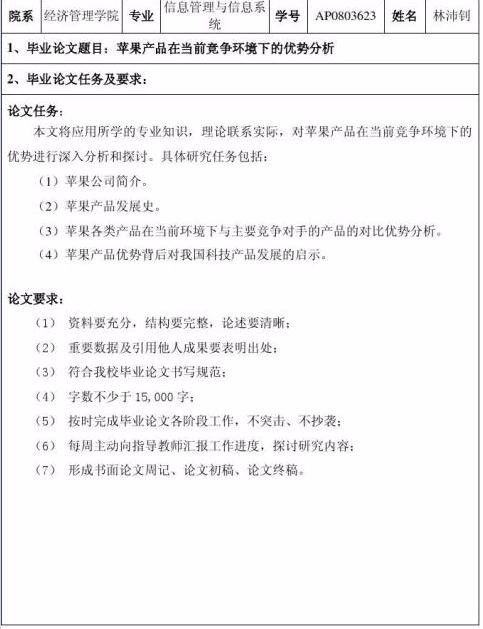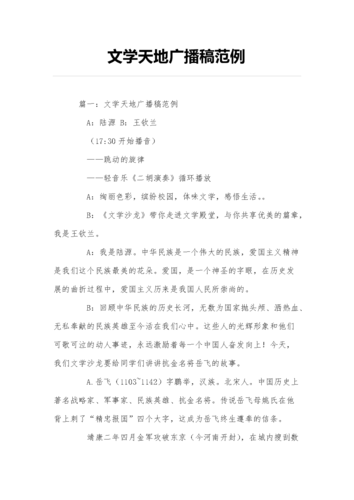英美文学毕业论文题目精选
**Title: Exploring Excellence in Undergraduate English and American Literature Dissertations**
**Abstract:**
Undertaking an undergraduate dissertation in English and American Literature presents a unique opportunity to delve into the rich tapestry of literary works that have shaped cultures and societies. Crafting an excellent dissertation requires a meticulous approach, blending critical analysis, original insights, and scholarly rigor. In this discourse, we delve into the hallmarks of exceptional undergraduate dissertations in English and American Literature, offering guidance and insights for aspiring scholars.
**Introduction:**
The realm of English and American Literature is vast and multifaceted, encompassing centuries of literary output from diverse authors and genres. Within the framework of undergraduate studies, students embark on a journey of exploration, analysis, and interpretation, culminating in the creation of a dissertation. This pivotal academic endeavor demands a synthesis of theoretical frameworks, close textual analysis, and scholarly engagement. Let us navigate the terrain of excellence in undergraduate dissertations within this field.
**1. Topic Selection:**
The foundation of an outstanding dissertation lies in the selection of a compelling and manageable topic. A successful topic should be specific enough to allow for in-depth exploration yet broad enough to invite diverse perspectives. Consideration should be given to current trends in literary scholarship, gaps in existing research, and personal interests. Engage with your professors, explore academic journals, and attend seminars to refine your topic and ensure its relevance and significance.
**2. Research Methodology:**
A robust research methodology forms the backbone of a well-executed dissertation. Whether employing literary analysis, historical contextualization, or theoretical frameworks, clarity and coherence in methodology are paramount. Embrace a combination of primary texts, secondary sources, and theoretical frameworks to enrich your analysis. Be transparent about the limitations of your chosen methodology and demonstrate reflexivity in your approach.
**3. Critical Engagement:**
The hallmark of a distinguished dissertation lies in its ability to engage critically with the chosen subject matter. Demonstrate a nuanced understanding of literary theory, historical context, and cultural implications within your analysis. Engage with conflicting interpretations and scholarly debates to enrich your discourse. Employ close textual analysis to unearth layers of meaning within the selected works, demonstrating your analytical acumen and interpretative skills.
**4. Originality and Innovation:**
Strive for originality and innovation in your dissertation by offering fresh insights and perspectives. Avoid merely summarizing existing scholarship; instead, seek to contribute to ongoing conversations within the field. Identify overlooked themes, marginalized voices, or alternative interpretations that offer new avenues for exploration. Embrace interdisciplinary approaches and intersectional perspectives to enrich your analysis and push the boundaries of scholarship.
**5. Writing and Presentation:**
The clarity and coherence of writing are essential aspects of an exceptional dissertation. Cultivate a lucid and engaging writing style that communicates your ideas effectively to your readers. Structure your dissertation logically, with clear signposting and transitions between sections. Pay meticulous attention to citation conventions and academic integrity, adhering to the guidelines of your institution and disciplinary standards.
**6. Revision and Feedback:**
Revision is an integral part of the dissertation writing process, enabling refinement and improvement of your work. Seek feedback from your academic supervisors, peers, and mentors throughout the drafting process. Embrace constructive criticism with an open mind, using it as an opportunity to strengthen your arguments and refine your analysis. Allocate sufficient time for multiple rounds of revision, ensuring that your final dissertation is polished and coherent.
**Conclusion:**
Crafting an outstanding undergraduate dissertation in English and American Literature requires a combination of scholarly rigor, critical engagement, and creative insight. By selecting a compelling topic, employing robust research methodology, engaging critically with the text, offering original perspectives, and presenting your findings with clarity and coherence, you can create a dissertation that not only fulfills the requirements of academic assessment but also contributes meaningfully to the ongoing scholarly discourse within the field.
**References:**
[Provide a list of references cited in the text following the appropriate citation style.]
[End of Document]
---
This HTML document outlines the key components of an excellent undergraduate dissertation in English and American Literature, offering guidance and insights for aspiring scholars. Let me know if you need any further adjustments or additional information!

免责声明:本网站部分内容由用户自行上传,若侵犯了您的权益,请联系我们处理,谢谢!










